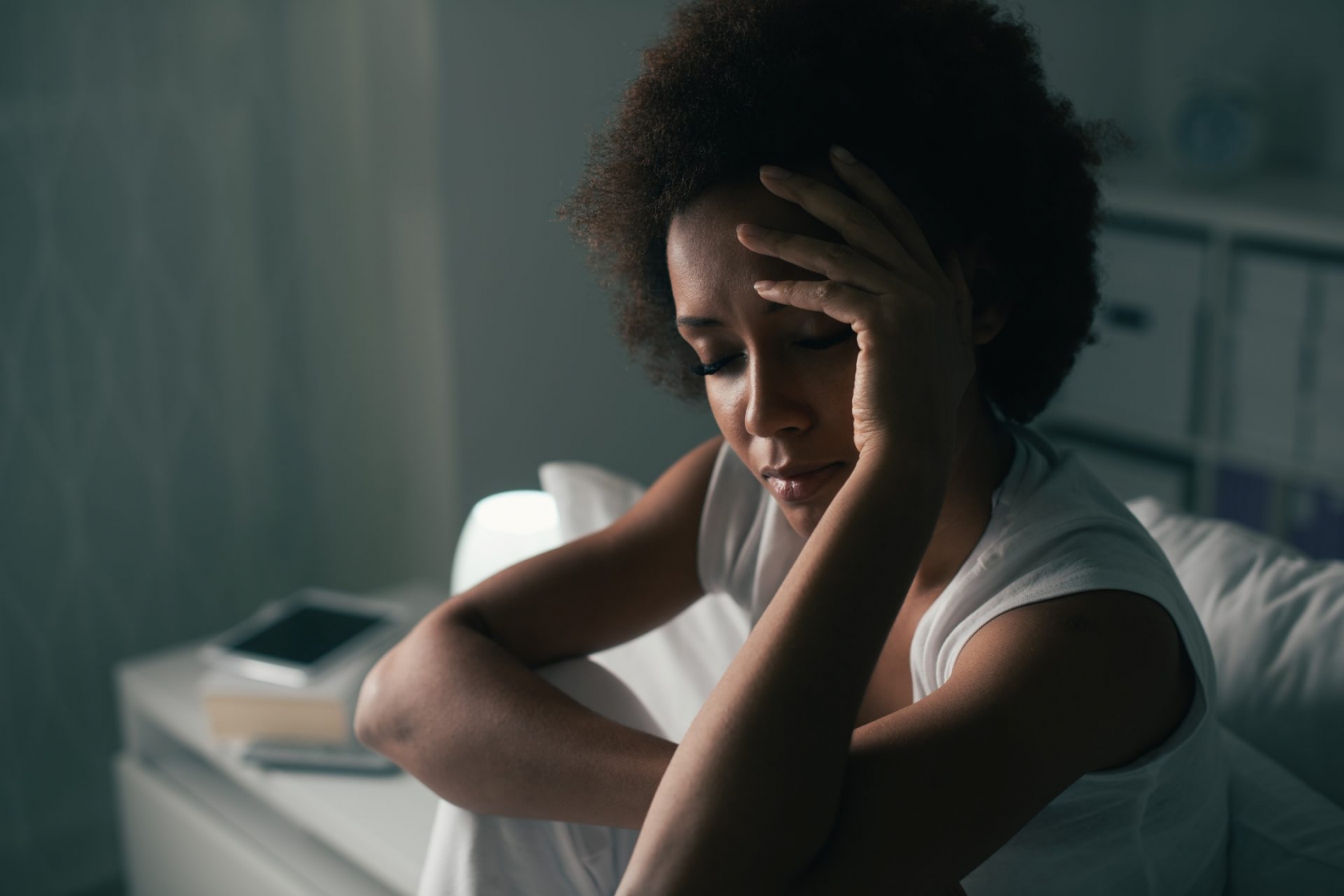
Written by Lauren Geall
As Stylist’s digital writer, Lauren Geall writes on topics including mental health, wellbeing and women’s issues. She’s also a big fan of houseplants and likes to dabble in film and TV from time-to-time. You can find her on Twitter at @laurenjanegeall.
Feeling overwhelmed, but not sure whether you’re stressed out or anxious? Here’s how to work out what’s going on.
The last couple of months have been particularly chaotic, even by post-2020 standards. From the record-breaking heatwave and a Conservative party leadership contest to the overturning of Roe v Wade and the ongoing cost-of-living crisis, the world feels pretty relentless right now – and chances are you’re feeling more stressed and anxious as a result.
However, although you’ve probably seen the words ‘stress’ and ‘anxiety’ interchangeably in the past, they actually have distinct differences.
That’s not to say the two don’t share similarities – both are emotional responses that can trigger symptoms including irritability and difficulty sleeping, among other things – but they do have differences, especially when it comes to what causes them.
With this in mind, understanding the differences between stress and anxiety – and being able to identify which one you’re experiencing at any given moment – is important because it allows you to make an informed decision about how to take care of yourself and your mental health going forward, and avoid or deal with whatever is triggering those feelings in the first place.
To find out more about the differences between stress and anxiety, including the causes, associated symptoms and how to cope, we asked Pablo Vandenabeele, clinical director for mental health at Bupa UK Insurance, some of the most commonly asked questions. Here’s what he had to say.
What are the main differences between stress and anxiety?

Stress and anxiety share a number of similarities – not only are they both normal emotional responses to certain experiences, but they also share many of the same symptoms, including uneasiness, headaches and loss of sleep.
However, as we’ve already mentioned, they also have distinct differences – especially when it comes to how they’re triggered.
“There are a few things that set stress and anxiety apart,” Vandenabeele explains.
“Stress is your body’s natural response to a challenge. Often, you’ll experience the physical signs of stress first, like a racing heart or sweaty palms.”
He continues: “Anxiety is different – it’s a reaction to stress and is mostly internal, unlike stress, which is usually triggered by something external. If the worry and distress you feel in a particular situation is unusual, excessive, or goes well beyond the reactions of other people, it may be anxiety rather than stress.
“If you have an anxiety disorder, you may experience worry or apprehension, even without a particular event or experience. This is different from stress – you’ll begin to feel stressed because of something happening or a pressured environment.”
How do the symptoms of stress and anxiety vary?
Although the types of symptoms caused by stress and anxiety – irritability, fatigue, difficulty sleeping, change in appetite – are mostly the same, the main symptomatic difference between the two is that anxiety is defined by constant worry.
“This persistent worry won’t go away, even if you’re no longer in a stressful situation,” Vandenabeele explains.
“Someone experiencing anxiety can’t easily control these feelings and may not always know what they’re anxious about.”
According to Vandenabeele, another key difference between stress and anxiety is how long symptoms last.
“Often, symptoms of stress will disappear once the situation or event that is causing these feelings is over. For example, you may find that you no longer feel irritated, fatigued or worried after you’ve finished a stressful project at work,” he says.
“If you are experiencing these feelings of anxiety or worry after a particular situation has gone, it could be more than just everyday stress.”
Can stress cause anxiety?

Yes – according to Vandenabeele, everyday stressors, such as being late or finding yourself in a stressful work situation, can cause anyone anxiety.
“A build-up of stress can also trigger anxiety, particularly if you’ve gone through a particularly stressful or traumatic situation when you were younger,” he adds.
However, it’s worth noting that, while everyday stress can leave you feeling anxious, it’s unlikely to cause long-term anxiety or an anxiety disorder.
How to tell whether you’re feeling stressed or anxious
If you’re experiencing symptoms consistent with stress and anxiety, asking yourself these two questions should help you to work out which of the two you’re dealing with.
Is something causing it?
“First, work out if it’s a particular event or situation that’s causing you to feel these emotions,” Vandenabeele says. “If you’re about to do a big presentation in work or you’re running late, the chances are you’re feeling stressed, rather than anxious.”
How long have these symptoms lasted?
“Think about how long you’ve experienced these symptoms for,” Vandenabeele recommends. “If your symptoms pass quickly, again it will likely be stress that you’re experiencing. Anxiety – on the other hand – will often be persistent and still be present, even if you’re no longer in a stressful situation.”
Although stress and anxiety are both normal responses to everyday stressors and events, if symptoms persist and begin to impact your daily life, it’s important to contact your GP, who will be able to help.
For more information on coping with stress and anxiety, you can check out the following articles:
- 8 quick and easy ways to relieve stress throughout the working day
- Can’t sleep because of anxiety? Here are 5 techniques to help you relax
- What is stress, and how does it affect your body?
- Struggling with anxiety for the first time in lockdown? Here’s everything you need to know
If you, or someone you know, is struggling with their mental health, you can find support and resources on the mental health charity Mind’s website and NHS Every Mind Matters or access the NHS’ list of mental health helplines and organisations here.
Additionally, you can ask your GP for a referral to NHS Talking Therapies, or you can self-refer.
For confidential support, you can also call the Samaritans in the UK on 116 123 or email [email protected].
This article was originally published on 14 March 2021 and has since been updated throughout.
Images: Unsplash/Getty
Source: Read Full Article